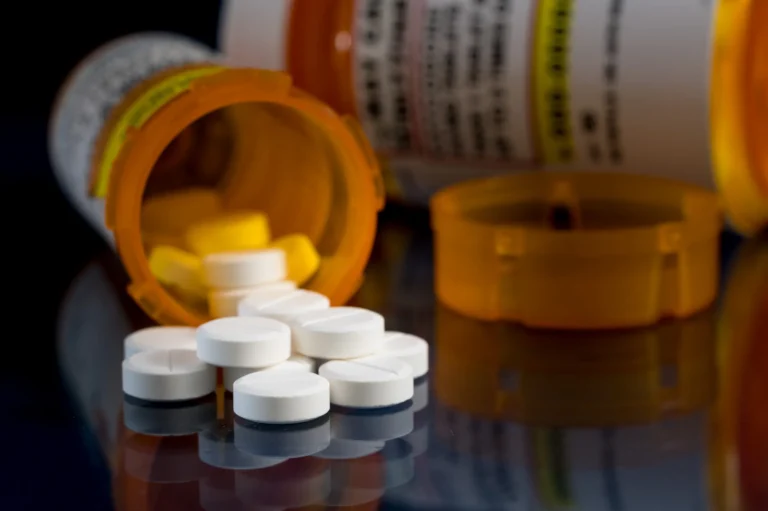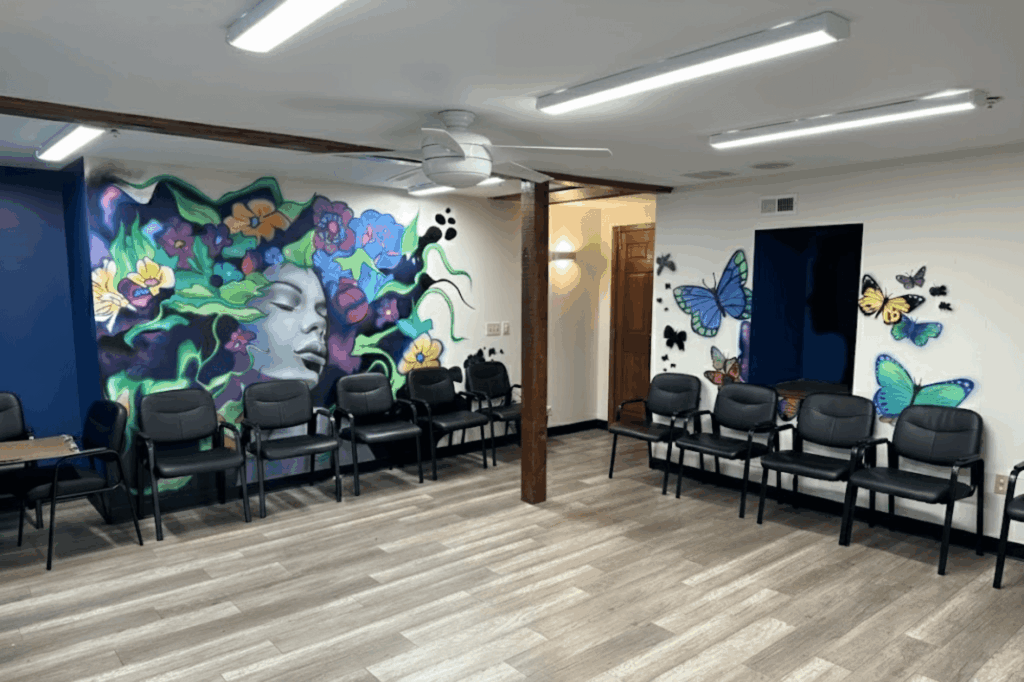
Knowing what the blues are and why they occur will help us to identify them. Starting the road toward recovery requires an awareness of drug addiction’s symptoms, including potential withdrawal symptoms, related blues, and the severe risks associated with prescription medication, such as opioid addiction and counterfeit pills. So let us don our detective caps and start sifting.
Table of Contents
Spotting the Blues: Recognizing the Withdrawal Symptoms
Knowing what the blues are and why they occur will help us to identify them. Starting the road toward recovery requires an awareness of drug addiction’s symptoms, including potential withdrawal symptoms, related blues, and the severe risks associated with prescription medication, such as opioid addiction and counterfeit pills. So let us don our detective caps and start sifting.
Look first for changes in attitude. We’re talking about the type of mood swings that give teenage anxiety the appearance of a stroll in the park. It could be time to probe a little further if you or someone you know is experiencing extreme emotional fluctuations alongside overwhelming cravings that signal a deeper issue. Recognizing signs of drug abuse is crucial in these situations.
Look then at physical symptoms. Drug addiction can affect the body and cause changes in weight, sleep patterns, even personal cleanliness. Your body seems to be screaming an SOS, and symptoms like agitation or flu-like withdrawals are telltale signs urging immediate attention.
At last, observe behavioral changes. Someone may be struggling with addiction if they start skipping events, neglecting chores, or acting in dangerous ways. Medication-Assisted Treatment (MAT) may be a compassionate intervention for easing such struggles, managing withdrawal symptoms, and curbing destructive cravings. Recall that the first step toward determining the correct road of recovery is the recognition of the blues.
Composition and Potency
Blues drugs, often referred to as oxycodone, are a type of opioid medication that combines natural and synthetic opioids. These medications are designed to manage severe pain, but their potency makes them a target for abuse. Prescription oxycodone is available in various dosages, including 10mg, 20mg, 30mg, and 40mg tablets. Among these, the 30mg tablets are the most commonly abused due to their high potency.
However, the real danger lies in counterfeit blues drugs. These fake pills often contain fentanyl, a synthetic opioid that is 50 to 100 times more potent than morphine. Even a tiny amount of fentanyl can be lethal, making counterfeit pills extremely dangerous. The combination of natural and synthetic opioids in these drugs, especially when tampered with, poses a significant risk to users.
Methods of Use and Abuse
Blues drugs can be abused in several ways, each carrying its own set of risks. Swallowing the pills is the most straightforward method, but it can lead to severe respiratory depression and potentially fatal overdoses. Snorting blues drugs, on the other hand, can cause significant damage to the nasal passages and respiratory system, leading to chronic health issues.
Injecting blues drugs is perhaps the most dangerous method of abuse. This practice can result in severe infections, including abscesses and blood-borne diseases like HIV and hepatitis. Additionally, users often mix blues drugs with other substances such as alcohol or benzodiazepines, which can amplify the risk of overdose and other adverse reactions. Each method of abuse not only increases the risk of immediate harm but also contributes to long-term health complications.
Counterfeit Pills and Their Dangers
Counterfeit blues drugs are a growing concern, as they often contain lethal doses of fentanyl or other dangerous substances. According to the Drug Enforcement Administration (DEA), as many as 6 in 10 oxycodone pills sold on the illicit market are laced with fentanyl. These counterfeit pills are designed to look like the real thing, making them difficult to distinguish from genuine prescription medications.
The inclusion of fentanyl in counterfeit pills significantly increases the risk of overdose, as even a minuscule amount can be deadly. Moreover, these fake pills can contain other harmful substances, such as methamphetamine, which can cause severe cardiovascular, neurological, and respiratory problems. The presence of these dangerous substances in counterfeit pills underscores the critical need for awareness and caution when dealing with any form of blues drugs.
Prevention and Awareness
Preventing the misuse of blues drugs and raising awareness about their dangers are crucial steps in combating the opioid crisis. Here are some ways to promote prevention and awareness:
Drug traffickers exploit social media and the dark web to distribute counterfeit pills, often misrepresenting potent substances like fentanyl as less dangerous opioids.
The Journey to Sobriety: A Step-by-Step Guide
Alright, people, it’s time to get to work rolling things out. Though the road to sobriety may be winding, with the right guidance, including inpatient treatment programs or detox programs that manage withdrawal symptoms, you’ll be well on your way to a revitalized future. Let’s thus dissect it methodically.
Start by acknowledging the problem. Though it’s not simple, admitting there’s an issue is tantamount to finding a beacon of hope in recovery. It’s like realizing there’s a path out of a dark room when you shine a flashlight there.
Step two: See a professional. Opioid addiction, particularly with ‘blues drugs’ like oxycodone, requires specialized treatment. The dangers associated with blue pills, including the risk of fentanyl-laced counterfeit versions leading to overdose and death, highlight the importance of professional treatment in overcoming addiction challenges. Whether one is looking for outpatient programs or more intensive inpatient treatment programs, finding the right help is crucial. Remember, dedicated counselors are here to provide counseling support as you journey toward health.
Third: Create a support system. Surround yourself with people that uplift and stand by you. Joining support groups, engaging in therapy, or exploring medication-assisted treatment is a robust approach to connect with individuals who can empathize with your experience.
By following these steps, and considering holistic services that include counseling support and medication-assisted treatment, you’re positioning yourself on a proactive path to long-term sobriety.

Embracing Evidence-Based Techniques in Medication Assisted Treatment
Within the realm of addiction recovery, evidence-based approaches are the super heroes. Among other approaches we discuss are dialectical behavior therapy (DBT) and cognitive-behavioral therapy (CBT). These treatments help people squarely address the blues, acting as the dynamic team of sobriety.
For instance, CBT is entirely about breaking those annoying negative thought patterns. It’s like painting fresh coats on your mind and seeing those black clouds transformed into fluffy, white ones. DBT, on the other hand, emphasizes mindfulness and emotional control, so enabling you to remain cool under pressure from daily life.
Treating addiction and the accompanying blues, both therapies have shown to be rather successful. These methods might thus be your ticket if you’re ready to face the world with a fresh sense of clarity and direction.
The Power of Aftercare and Sober Living in Preventing Opioid Overdose
Congratulation; you have survived the first phases of recovery! But wait, there’s more. The road doesn’t stop here, friend. Maintaining sobriety and preventing those bothersome blues depend mostly on sober living and aftercare. The alarming rise in overdose deaths related to opioids highlights the importance of aftercare in preventing such tragedies.
Ongoing support and therapy provided by aftercare programs helps you to have a safety net as you negotiate life following treatment. Like having a personal cheerleading team supporting you at every turn.
Conversely, sober living offers a regimented setting where you can keep developing and healing. Here you can create fresh routines, forge lifelong friendships, and rediscover the delight of leading a life free from addiction.
The Role of Family and Friends in Drug Addiction Recovery
Men (or women) are not islands; the road to recovery is no different. Helping their loved ones through the ups and downs of addiction recovery depends much on family and friends. It’s like having a team of superheroes on hand, poised to meet every obstacle that arises.
Above all, communication is essential. Open and honest dialogues foster understanding and trust. Everyone should feel heard and supported in a safe environment created by you.
Then, educate yourself. Knowing the complexity of addiction will enable family and friends to offer the appropriate kind of help. It’s like arming yourself with knowledge to be the ultimate friend in the battle against addiction.
Finally, learn empathy and patience. Recovering is a marathon rather than a sprint, and roadblocks will abound. However, you can enable your loved one to remain on the road towards a better future by means of love and understanding.
Overcoming the Stigma of Addiction
Oh, the terrible shame. Like a shadow hovering over the realm of addiction, people find it challenging to get the treatment they require, especially when dealing with the misuse of prescription drugs. Still, fear not; together, we can remove these obstacles and build a society more sensitive.
Let us start with dispelling the misunderstandings. Not a moral failing, addiction is a complicated illness. The Drug Enforcement Administration (DEA) has been instrumental in addressing the dangers associated with counterfeit pills and fentanyl. Teaching others and ourselves will help us to dispel preconceptions and promote a more tolerant society.
Let’s then honor the achievements. Recovering is a trip worth celebrating, and by telling tales of success, one can encourage others to get treatment. It’s like illuminating the road to healing and proving that recovery is not only feasible but also rather clear.
Let us lastly support transformation. Back programs and policies meant to advance mental health and addiction recovery. Working together, we can design a society in which everyone has access to the required care and encouragement.
Finding Joy in Sobriety
Sobriety is about rediscovering the delight in life rather than only about avoiding drugs. It’s like opening a door to a universe bursting with fresh experiences and countless opportunities. How therefore can one enjoy sobriety? Here let’s investigate.
First, welcome fresh interests and activities. Finding activities that make you happy can be quite rewarding whether your interests are painting, hiking, or learning to play an instrument. It’s like starting over free from the restrictions of addiction for your body and mind.
Then, give self-care first priority. Maintaining sobriety depends on your keeping of both your physical and mental health. It’s like daily giving yourself a much-needed spa day.
Finally, develop appreciation. By means of gratitude, you can help refocus your attention from what you lack to what you do. It’s like donning rose-colored glasses and suddenly seeing the world in whole fresh perspective.
Embracing the Journey
And thus you have it, people—the blues demystified. A better, healthier future starts with knowing drug addiction and recovery. Remember you’re not alone whether your journey to sobriety or you’re helping a loved one.
Though the road to recovery may be meandering, with the correct support, evidence-based approaches, and a good dose of humor you will be able to overcome the blues and start to enjoy sober living. Here then is fresh starts and a future full of healing and hope. Here’s cheers!
Dr. Mitchell G. Cohen is a board-certified Internal Medicine specialist with over 34 years of experience in patient-centered healthcare. A graduate of Hahnemann University School of Medicine, Dr. Cohen completed his internship at the University Health Center of Pittsburgh, where he gained invaluable hands-on experience. He is also a certified addiction specialist, holding membership with the American Society of Addiction Medicine (ASAM).
Currently based in Nashua, NH, Dr. Cohen is affiliated with Saint Joseph Hospital, where he provides comprehensive care focusing on both internal medicine and addiction treatment. His expertise includes prevention, diagnosis, and management of adult diseases, as well as specialized care for individuals facing substance use disorders.
Dr. Cohen is committed to fostering open communication, ensuring his patients are fully informed and empowered to make confident decisions about their health and treatment options.

MD Mitchell Grant Cohen
Dr. Mitchell G. Cohen is a board-certified Internal Medicine specialist with over 34 years of experience in patient-centered healthcare. A graduate of Hahnemann University School of Medicine, Dr. Cohen completed his internship at the University Health Center of Pittsburgh, where he gained invaluable hands-on experience. He is also a certified addiction specialist, holding membership with the American Society of Addiction Medicine (ASAM).
Currently based in Nashua, NH, Dr. Cohen is affiliated with Saint Joseph Hospital, where he provides comprehensive care focusing on both internal medicine and addiction treatment. His expertise includes prevention, diagnosis, and management of adult diseases, as well as specialized care for individuals facing substance use disorders.
Dr. Cohen is committed to fostering open communication, ensuring his patients are fully informed and empowered to make confident decisions about their health and treatment options.
- MD Mitchell Grant Cohen
- MD Mitchell Grant Cohen
- MD Mitchell Grant Cohen
- MD Mitchell Grant Cohen
- MD Mitchell Grant Cohen
- MD Mitchell Grant Cohen
- MD Mitchell Grant Cohen
- MD Mitchell Grant Cohen
- MD Mitchell Grant Cohen
- MD Mitchell Grant Cohen
- MD Mitchell Grant Cohen
- MD Mitchell Grant Cohen
- MD Mitchell Grant Cohen
- MD Mitchell Grant Cohen
- MD Mitchell Grant Cohen
- MD Mitchell Grant Cohen
- MD Mitchell Grant Cohen
- MD Mitchell Grant Cohen
- MD Mitchell Grant Cohen
- MD Mitchell Grant Cohen
- MD Mitchell Grant Cohen
- MD Mitchell Grant Cohen
- MD Mitchell Grant Cohen
- MD Mitchell Grant Cohen
- MD Mitchell Grant Cohen
- MD Mitchell Grant Cohen
- MD Mitchell Grant Cohen
- MD Mitchell Grant Cohen
- MD Mitchell Grant Cohen
- MD Mitchell Grant Cohen
- MD Mitchell Grant Cohen
- MD Mitchell Grant Cohen
- MD Mitchell Grant Cohen
- MD Mitchell Grant Cohen
- MD Mitchell Grant Cohen
- MD Mitchell Grant Cohen
- MD Mitchell Grant Cohen
- MD Mitchell Grant Cohen
- MD Mitchell Grant Cohen
- MD Mitchell Grant Cohen
- MD Mitchell Grant Cohen
- MD Mitchell Grant Cohen
- MD Mitchell Grant Cohen
- MD Mitchell Grant Cohen
- MD Mitchell Grant Cohen
- MD Mitchell Grant Cohen
- MD Mitchell Grant Cohen
- MD Mitchell Grant Cohen
- MD Mitchell Grant Cohen
- MD Mitchell Grant Cohen
- MD Mitchell Grant Cohen
- MD Mitchell Grant Cohen
- MD Mitchell Grant Cohen
- MD Mitchell Grant Cohen
- MD Mitchell Grant Cohen
- MD Mitchell Grant Cohen
- MD Mitchell Grant Cohen
- MD Mitchell Grant Cohen
- MD Mitchell Grant Cohen
- MD Mitchell Grant Cohen
- MD Mitchell Grant Cohen
- MD Mitchell Grant Cohen
- MD Mitchell Grant Cohen
- MD Mitchell Grant Cohen
- MD Mitchell Grant Cohen
- MD Mitchell Grant Cohen
- MD Mitchell Grant Cohen
- MD Mitchell Grant Cohen
- MD Mitchell Grant Cohen
- MD Mitchell Grant Cohen
- MD Mitchell Grant Cohen
- MD Mitchell Grant Cohen
- MD Mitchell Grant Cohen
- MD Mitchell Grant Cohen
- MD Mitchell Grant Cohen
- MD Mitchell Grant Cohen
- MD Mitchell Grant Cohen
- MD Mitchell Grant Cohen







